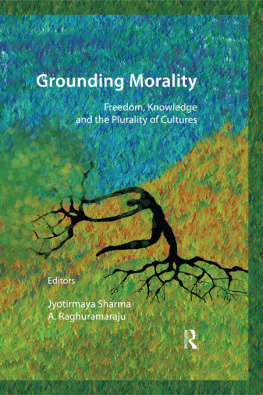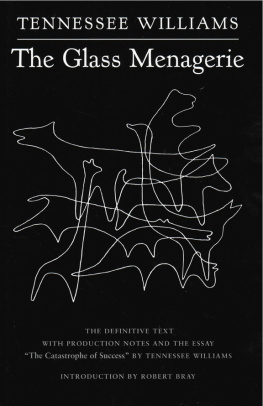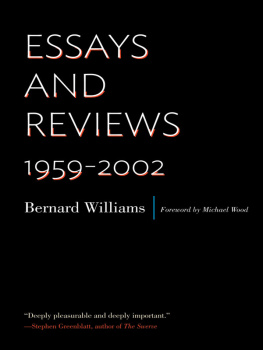Morality and Agency

Oxford University Press is a department of the University of Oxford. It furthers the Universitys objective of excellence in research, scholarship, and education by publishing worldwide. Oxford is a registered trade mark of Oxford University Press in the UK and certain other countries.
Published in the United States of America by Oxford University Press
198 Madison Avenue, New York, NY 10016, United States of America.
Oxford University Press 2022
All rights reserved. No part of this publication may be reproduced, stored in a retrieval system, or transmitted, in any form or by any means, without the prior permission in writing of Oxford University Press, or as expressly permitted by law, by license, or under terms agreed with the appropriate reproduction rights organization. Inquiries concerning reproduction outside the scope of the above should be sent to the Rights Department, Oxford University Press, at the address above.
You must not circulate this work in any other form and you must impose this same condition on any acquirer.
Library of Congress Control Number: 2022936410
ISBN 9780197626566
eISBN 9780197626580
DOI: 10.1093/oso/9780197626566.001.0001
Contents
Andrs Szigeti and Matthew Talbert
Brian Leiter
Marcel van Ackeren
Stephen Bero and Aness Kim Webster
Stephen Darwall
Agata ukomska
Gideon Rosen
Paul Russell
Matthieu Queloz
Ulrike Heuer
Daniel Telech
Miranda Fricker
Geraldine Ng
The chapters collected here were presented at a workshop entitled Agency, Fate, and Luck: Themes from Bernard Williams, which was organized by the Lund Gothenburg Responsibility Project and held in Lund, Sweden, on June 1315, 2019. The Lund Gothenburg Responsibility Project is funded by the Swedish Research Council. We gratefully acknowledge the Swedish Research Councils support, without which the workshop in Lund would not have been possible. The director and principal investigator of the Lund Gothenburg Responsibility Project is Paul Russell. He not only master-minded the workshop in the first place, but his encouragement and assistance in bringing this volume to completion were also essential. We would also like to thank all those who participated in the workshop. We were particularly pleased that Patricia Williams was able to be in attendance. We would like to express our gratitude to Annah Smedberg-Eivers and the Lund University Department of Philosophy for making the necessary arrangements and for hosting the workshop. Finally, we would like to thank Alexander Velichkov for providing us with editorial assistance and for compiling this books index. With the exception of Miranda Frickers contribution, these chapters are published here for the first time. We would like to thank Cambridge University Press and the Canadian Journal of Philosophy for permission to reprint Frickers chapter.
Stephen Bero
School of Law
University of Surrey
Guildford, UK
Stephen Darwall
Department of Philosophy
Yale University
New Haven, CT, USA
Miranda Fricker
Department of Philosophy
The Graduate Center CUNY
New York City, NY, USA
Ulrike Heuer
Department of Philosophy
University College London
London, UK
Brian Leiter
Center for Law, Philosophy and Human Values
University of Chicago
Chicago, IL, USA
Agata ukomska
Department of Philosophy
University of Warsaw
Warsaw, Poland
Geraldine Ng
Philosophy Lab CIC
London, UK
Matthieu Queloz
Faculty of Philosophy
University of Oxford
Oxford, UK
Gideon Rosen
Department of Philosophy
Princeton University
Princeton, NJ, USA
Paul Russell
Lund Gothenburg Responsibility Project (LGRP)
Lund University
Lund, Sweden
Department of Philosophy
University of British Columbia
Vancouver, BC, Canada
Andrs Szigeti
Lund Gothenburg Responsibility Project (LGRP)
Lund University
Lund, Sweden
Department of Philosophy
Institute for Culture and Society (IKOS)
Linkping University
Linkping, Sweden
Matthew Talbert
Lund Gothenburg Responsibility Project (LGRP)
Lund University
Lund, Sweden
Department of Philosophy
West Virginia University
Morgantown, WV, USA
Daniel Telech
Polonsky Academy for Advanced Study in the Humanities and Social Sciences
The Van Leer Jerusalem Institute
Jerusalem, Israel
Marcel van Ackeren
Faculty of Chemistry and Pharmacy
Wrzburg University
Wrzburg, Germany
Department of Philosophy
Oxford University
Oxford, UK
Aness Kim Webster
Department of Philosophy
Durham University
Durham, UK
Andrs Szigeti and Matthew Talbert
is that we do not understand Williamss work well enough and that more philosophy is required to understand it better. No doubt, Williams was and remains a highly influential and respected figure, not just as a philosopher but alsomost unusually for analytical philosopherswell beyond the world of academe. During his dazzling academic career, he held prestigious positions at universities in Britain and the United States, and he was also sought after as a public intellectual and a policy advisor. And yet he is not infrequently regarded as a bit of a maverick, a Socratic figure who asks the right questions but does not supply the answers and, truth be told, more often than not has not even seriously attempted to do so. This volume joins the hopefully growing number of attempts to decisively counter this characterization.
Granted, there are a few things everybody with even a minimal interest in analytical philosophy will (more or less grudgingly) acknowledge about Williams: that he was a brilliant and original moral philosopher who eschewed the dry conceptual analyses favored by some of his contemporaries in preference for a more historically oriented approach, that he was deeply critical of attempts to resolve difficult moral problems by invoking abstract and technical distinctions, and that he did not think it was desirable or possible to present ones views as a philosophical system. In light of this skeptical and anti-theoretical attitude, even many fans of Williamss work tend to emphasize its negative aspects. In particular, he is widely recognized for his sustained and many-faceted critique of the morality systemthat is, the system of modern moral practices which Williams himself referred to as the peculiar institution and which he associated with a set of distinctive philosophical, mostly Kantian but also Utilitarian, ideas.
We agree with those commentators (, etc.) who argue that this depiction is woefully one-sided and simplistic even in its praise, let alone its criticisms. Not just because it underplays the coherence of Williamss key ideas but also because it ignores Williamss intention to make a positive contribution to several areas in ethics and metaethics, including debates on the problem of free will and moral responsibility, the nature of moral emotions and reactive attitudes, the scope of rational motivations in morality, the possibility of moral knowledge, and much more. This anthology has been put together in the spirit of the latter assessment of Williamss work. Specifically, our aim has been to select chapters that focus on the substantive and original ideas and methods Williams developed as part of his distinctive outlook in ethics. Needless to say, in analytical philosophy the elaboration of new ideas and methods nearly always proceeds by way of criticizing extant alternatives. This is perhaps especially so in Williamss work, given the above-mentioned historical and skeptical orientation of his entire approach. Consequently, it should come as no surprise that the chapters collected here also reflect extensively on the critical and negative side of Williamss philosophy. That said, the primary interest of the authors contributing to this volume has been to focus on Williamss conceptual and methodological innovations. Our hope, in short, is that these chapters will add some new strokes to the emerging picture of Williamss philosophy as a fully fledged alternative approach in ethics.














